Notice that a federal lawsuit may be brought against UNC if no action is taken to remove the Confederate monument Silent Sam from the Chapel Hill campus was sent to the university on Wednesday.
A letter was sent to officials at UNC – Chapel Hill and the UNC System on behalf of 12 students, the UNC Black Law Students Association and Professor Erika K. Wilson. The notice came from Hampton Dellinger of the Boies Schiller Flexner law firm, which has offices across the United States.
Dellinger, a Chapel Hill native who splits his time at the firm between North Carolina and Washington, DC, wrote in the letter that the statue “violates federal anti-discrimination laws by fostering a racially hostile learning environment.”
The letter continues, “we request that you authorize [Silent Sam’s] immediate removal in order to avoid needless litigation.”
Dellinger argues that the monument “runs afoul of federal law” in the form of various provisions of the Civil Rights Act of 1964.
Silent Sam has been a target of protests for many years. Those protests have intensified in recent weeks as students held a rally last month on the first day of the new academic year. Chancellor Emeritus James Moeser told WCHL at the August rally that his mind had recently changed and that he felt it was time for Silent Sam to be taken down.
Moeser said that a white supremacist rally in Charlottesville, Virginia, in August changed his thinking about the monument’s place on campus. A counter protester was killed in Charlottesville when an attendee of the Unite the Right rally drove his vehicle into a crowd.
Critics of Silent Sam have also pointed to the timing of its placement on the campus in 1913, calling it a marker of white supremacy more than a war memorial.
UNC Chancellor Carol Folt has maintained she would order the removal of the monument if she felt the university had the unilateral legal authority to do so. But the university does not have that authority, according to Folt, due to a 2015 law passed by the Republican-led General Assembly preventing the removal of historical monuments from state grounds.
Dellinger writes in Wednesday’s letter to UNC that “that position is wrong as it ignores UNC’s overriding obligation to comply with federal anti-discrimination laws.” He adds, “UNC’s state law excuse is an insufficient response to a breach of federal law.”
Dellinger said in an interview with WCHL that the university had confirmed receipt of the letter but had offered no “substantive” response.
UNC vice chancellor of university communications Joel Curran issued the following statement to WCHL:
“We have received the letter and understand that for many people the Confederate Monument’s presence can engender strong emotions, and we are respectful of those emotions. While we do not have the unilateral legal authority to move the monument, these students have raised questions about federal civil rights law that will need to be addressed, and we will work with our Board of Trustees and Board of Governors to do so. In the meantime, the Chancellor’s Task Force on UNC-Chapel Hill History is developing an interpretive plan for McCorkle Place that will include signage presenting historical context of how the monument was erected as part of a broader effort to tell the honest and accurate history of the University.”
Related Stories
‹
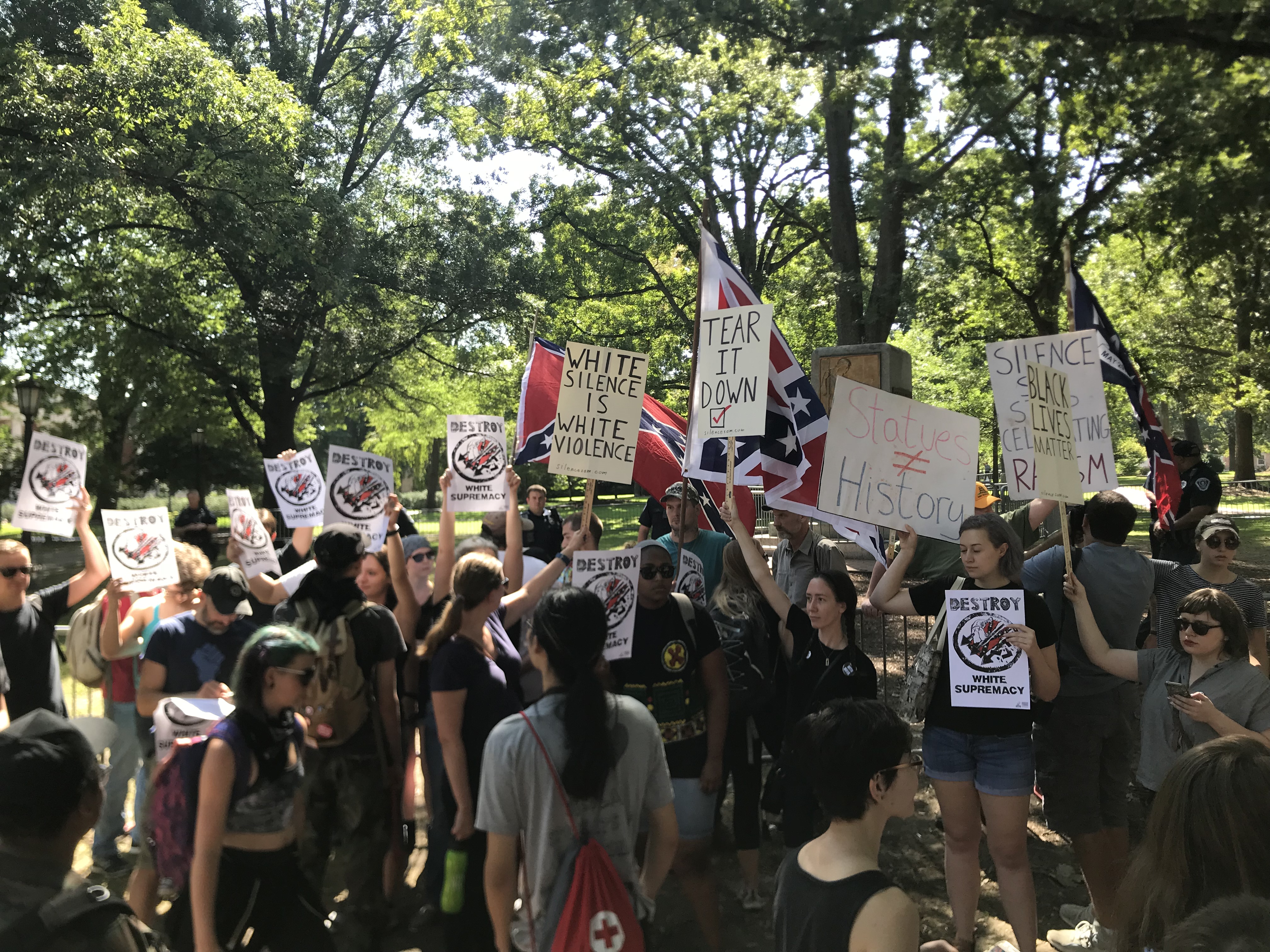
Chapel Hill to UNC: Relocate Silent Sam Away from the TownChapel Hill Mayor Pam Hemminger and members of the Town Council sent a letter to UNC following the voided lawsuit between the university and a pro-Confederate group. Last week, Judge Allen Baddour ruled that the Sons of Confederate Veterans lacked evidence to prove the group had legal standing to bring action against the UNC System and dismissed […]
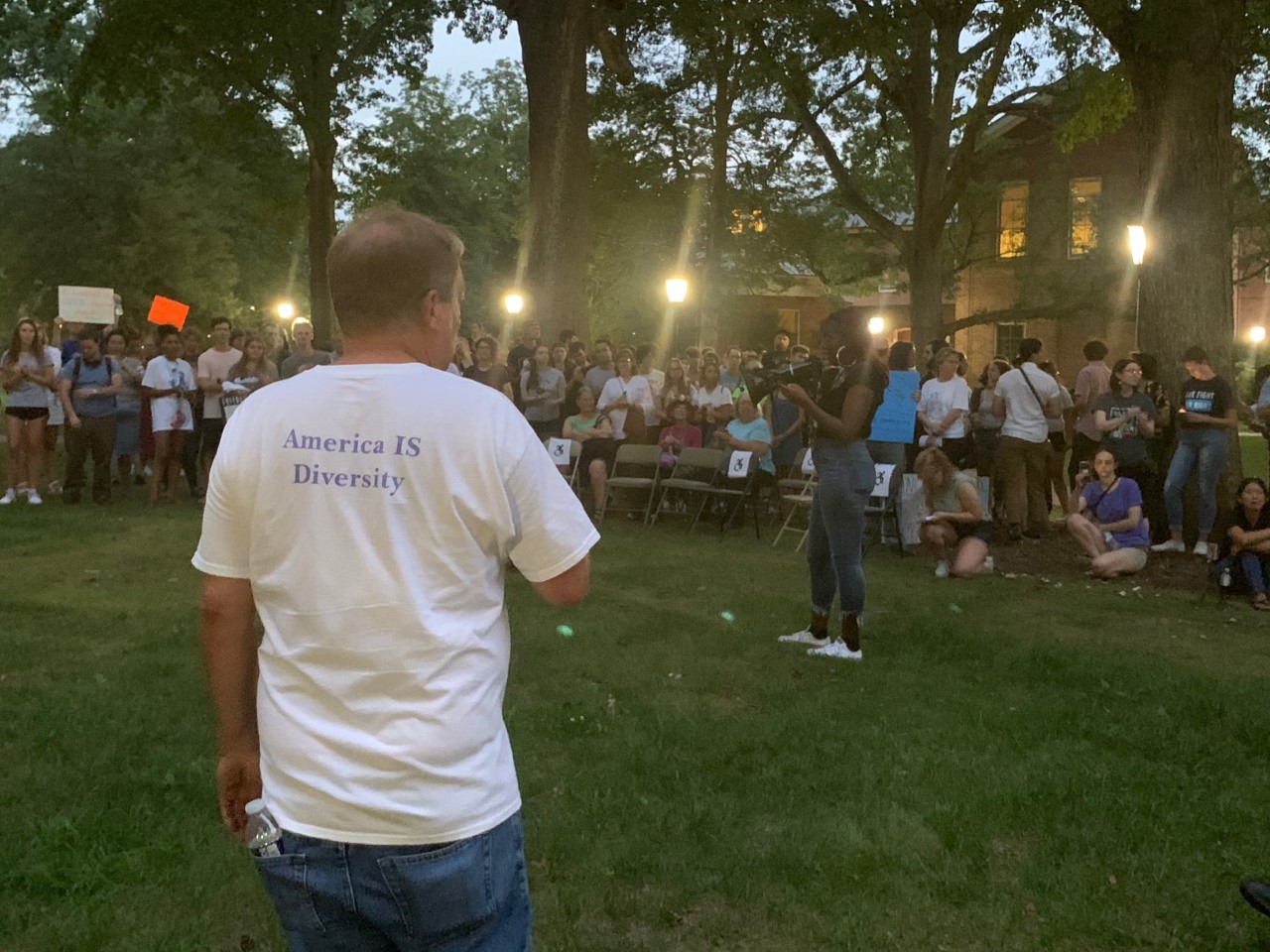
Groups Celebrate Anniversary of Silent Sam Toppling at UNCSinging and chanting started a rally Tuesday night celebrating the one-year anniversary of the Confederate monument on the UNC campus known as Silent Sam being toppled by protesters. A coalition of groups organized Tuesday’s event, including a land acknowledgment from a member of the Carolina Indian Circle and remarks from Barbara Sostaita with UndocuCarolina – […]
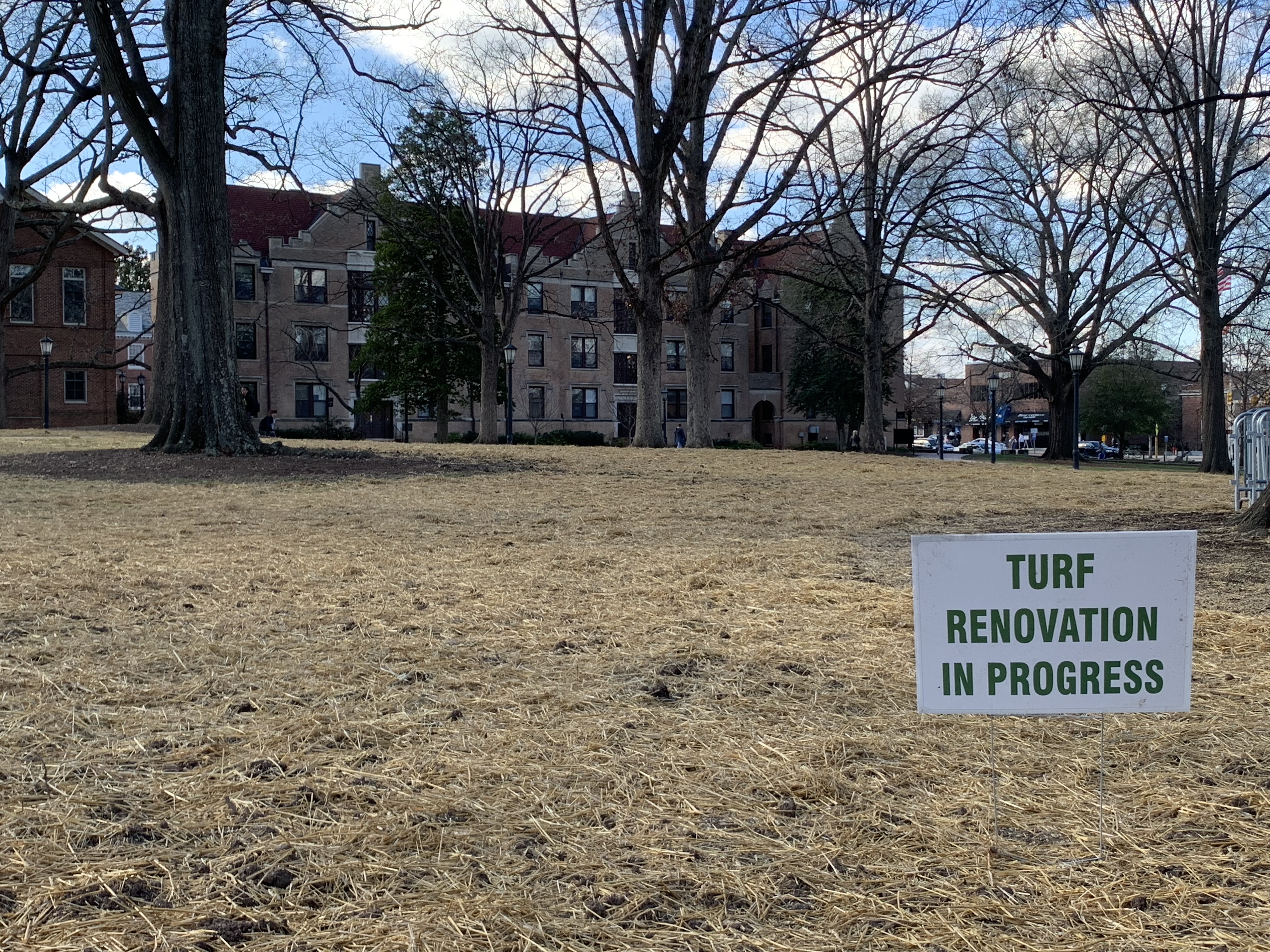
Silent Sam Decision Clouding Start of UNC Academic YearProtesters pulled the Confederate monument known as Silent Sam down from its pedestal on McCorkle Place on the UNC campus one year ago. But the monument’s future – whether on or off campus – is still undecided. That event on August 20, 2018, was the culmination of protests calling for the university administration to remove […]
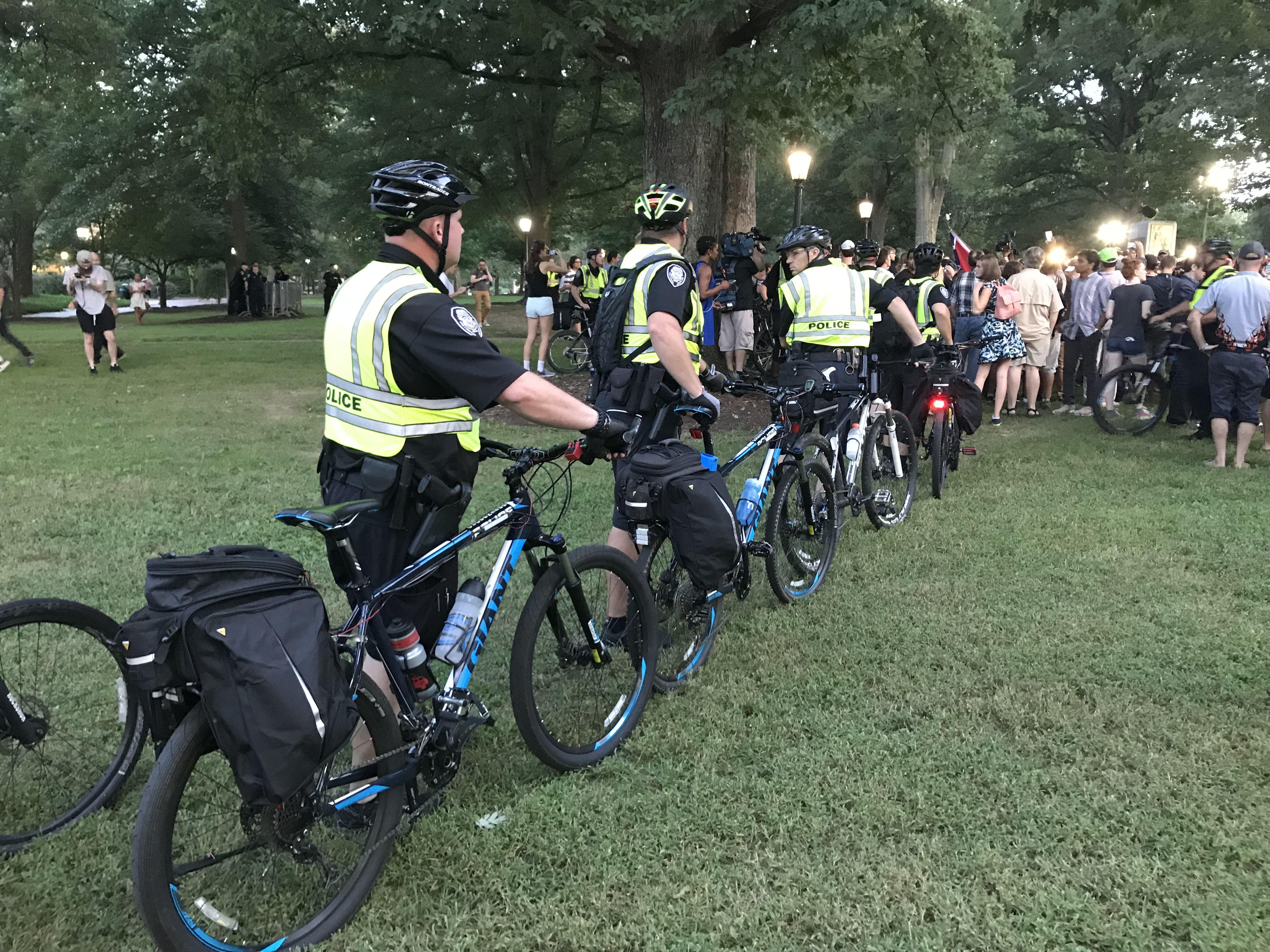
Silent Sam Decision Looms Over UNC, Search for Police ChiefJeff McCracken’s retirement as UNC Police chief, which was announced earlier this year, is effective Monday, and the university has named Thomas Younce as his interim replacement. UNC – Chapel Hill Board of Trustees chair Haywood Cochrane said after a special meeting of the board last Thursday that the national search for a permanent police […]

After Tumultuous Academic Year, UNC Board Still Divided on Silent SamWhile the Confederate monument known as Silent Sam wasn’t officially on the agenda for Wednesday’s meeting of the UNC System Board of Governors, it was still on the minds of many at the meeting. The initial mid-March deadline for a new plan for the statue that stood on the UNC – Chapel Hill campus for […]

UNC Governors Will Not Discuss Silent Sam at May MeetingContinuing a series of delays, the UNC System Board of Governors will not discuss the future of the Confederate monument on the UNC – Chapel Hill campus known as Silent Sam at the board’s May meeting. Board chair Harry Smith made the announcement Tuesday afternoon. “In early March, we set the May meeting of the […]

UNC, Chapel Hill Planning for Possible Demonstrations SaturdayOfficials from UNC and the Town of Chapel Hill are preparing for the potential for demonstrations in downtown where the campus and town meet on Saturday. The UNC administration sent a message to the campus community on Friday that said the university “is preparing for the possibility of opposing demonstrations on and near campus.” The […]
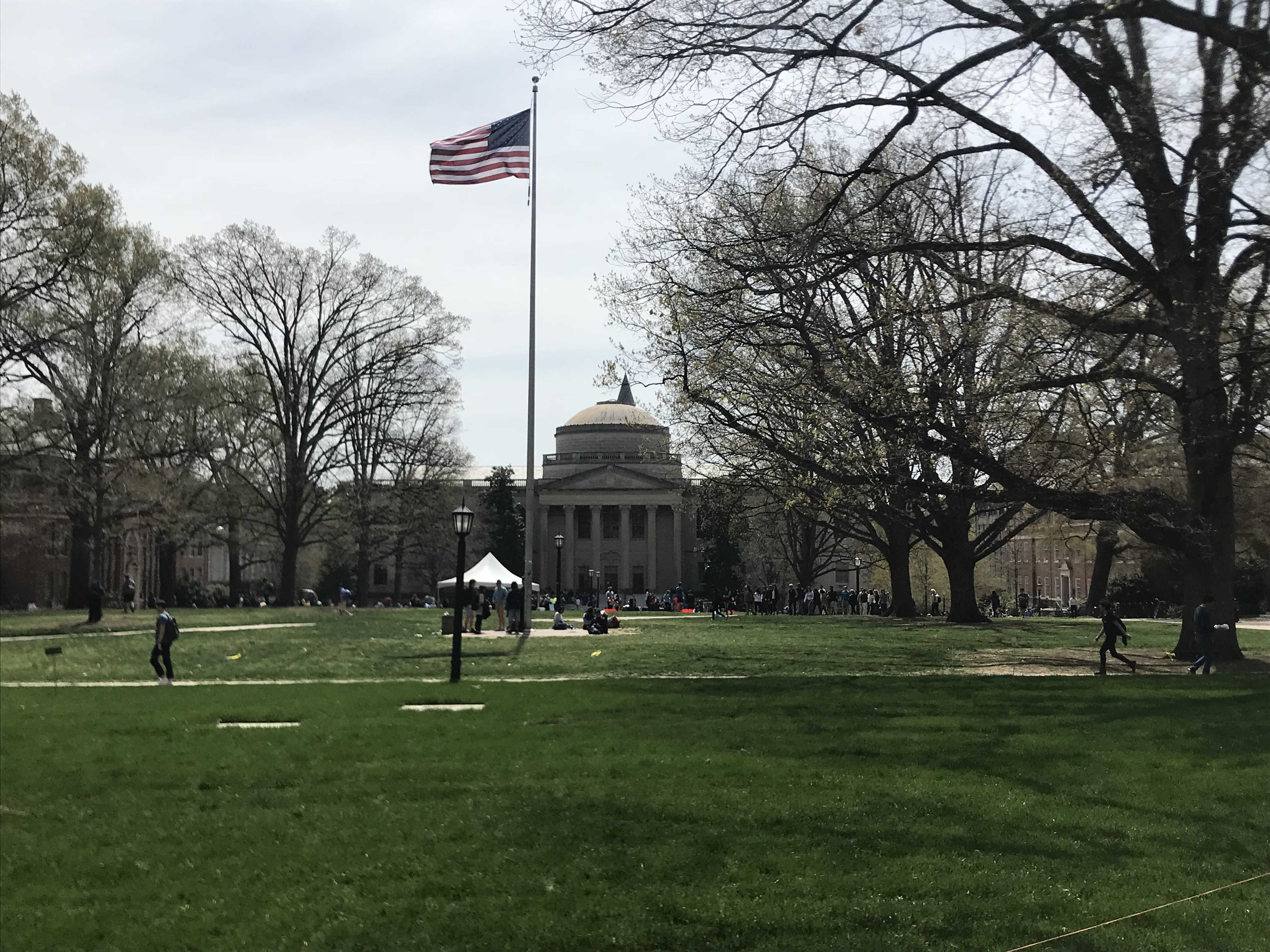
UNC Chair Says Faculty had Good Meeting Discussing Silent Sam with Board of GovernorsLeslie Parise announced late last month that she would be stepping down from her role as faculty chair. She joked during her address to the Board of Trustees University Affairs committee on Wednesday that leaving two years into the three-year appointment was fitting with recent university turnover. “Because, as you know, interim is kind of […]
![]()
UNC Police: 'Permanent Marker and Urine' Used to Deface Unsung Founders MemorialUNC Police have sworn out warrants for two suspects wanted in connection with two “racist actions” on the campus on Sunday. Authorities on Monday afternoon released incident reports for the two instances. The suspects used “permanent marker and urine” to vandalize the Unsung Founders Memorial on McCorkle Place. An outdoor art installment near the Hanes […]

UNC Investigating 2 'Racist Actions' on Campus SundayUNC Police are investigating multiple “racist actions” that were carried out on the campus on Sunday. “Two individuals defaced the Unsung Founders Memorial, writing racist and other deplorable language on it,” interim chancellor Kevin Guskiewicz wrote in a message to the campus Sunday evening. The Unsung Founders Memorial was a donation from the class of […]
›






